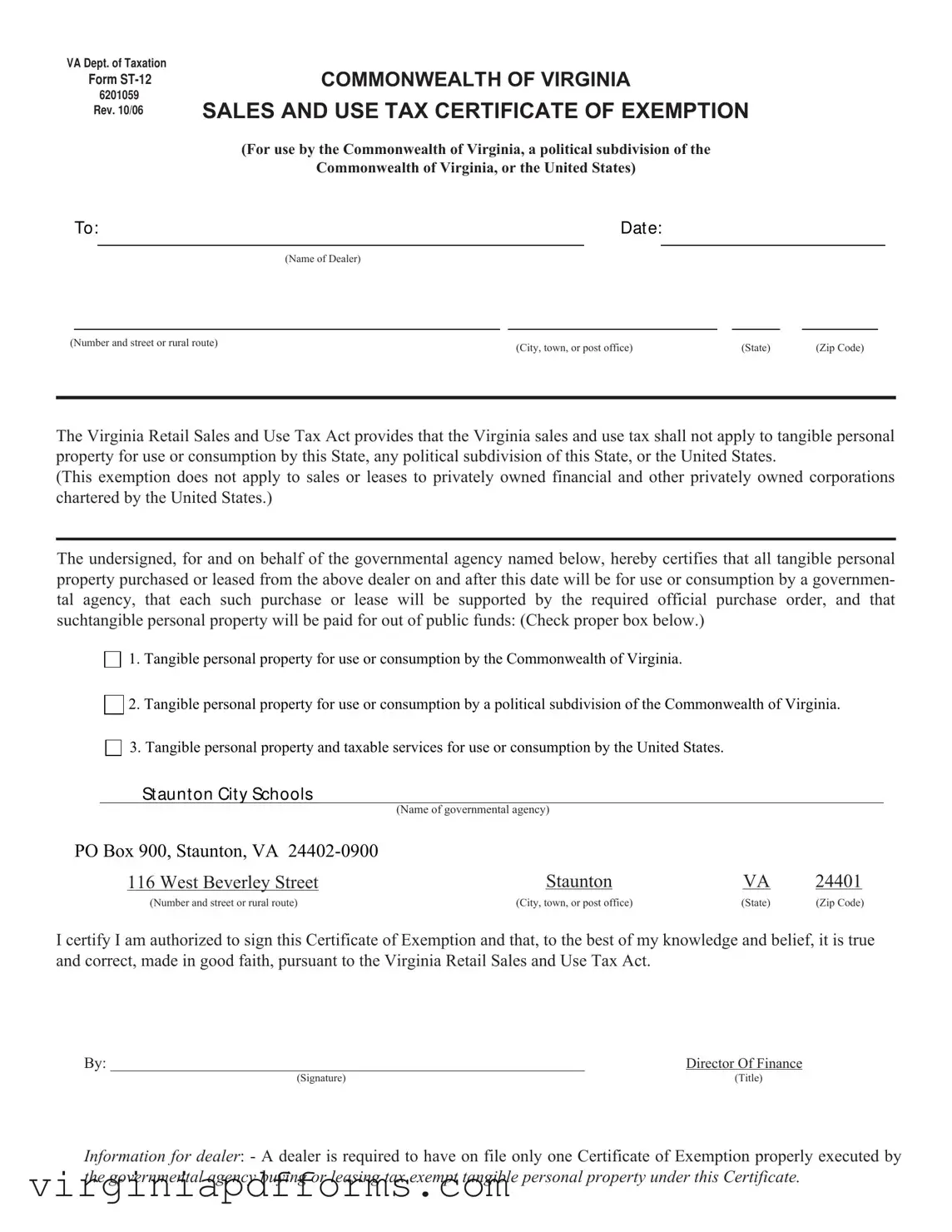Fill in a Valid Virginia St 12 Template
The Virginia St 12 form is a Sales and Use Tax Certificate of Exemption, specifically designed for use by governmental entities within Virginia and the United States. This form allows these entities to purchase tangible personal property without incurring sales and use tax, provided the items are for official use. By completing this form, a governmental agency certifies that its purchases will be made with public funds and are exempt from taxation under the Virginia Retail Sales and Use Tax Act.
Access My Document Now

Fill in a Valid Virginia St 12 Template
Access My Document Now

Access My Document Now
or
Free Virginia St 12 File
Need this form wrapped up fast?
Finish Virginia St 12 online — edit, save, download without effort.